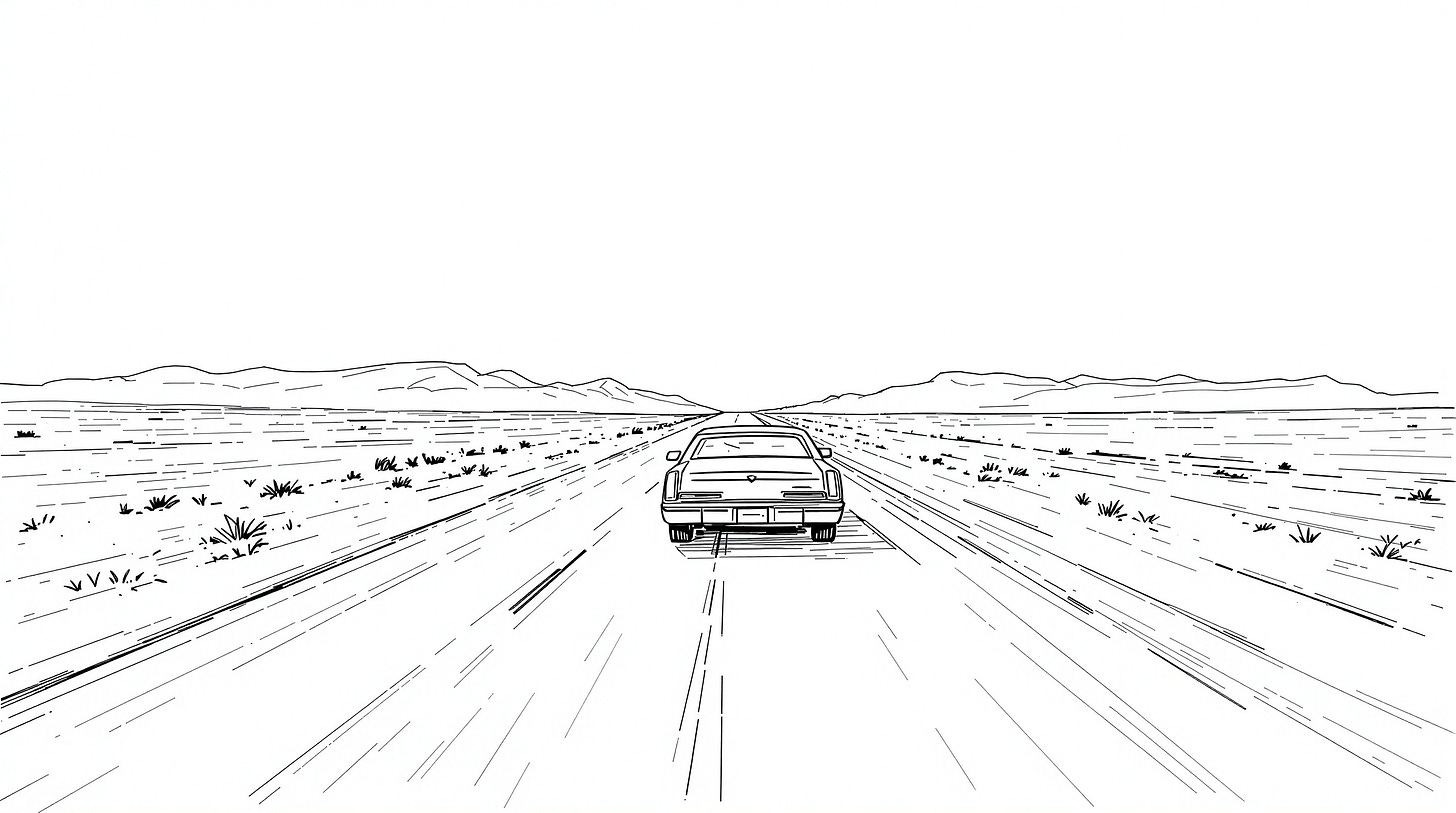Chapter 1.1
The National Hero of the Republic of Palatiparvu
You ask about the President’s state of mind, and I will tell you that he has been happiest, lately, on our drives north from the capital to the National Ruins. These are marvelous journeys, and marvelous in more than one way. There are, to begin with, obviously, the simple pleasures of travel, of road travel, of listening to tires on pavement while the world slides by. The rear seats of the Presidential limousine are upholstered in thick, polished leather, and they welcome bottoms with sighs as soft as the exhalations of satisfied lovers; it is deep, the serenity to be found on such plush thrones, as you gaze out the glass at the scrolling wilds of Palatiparvu. Ours is not, it is true, a traditionally beautiful country, but we have plenty of horizon, and for most of the drive along the Great Salt Carotid it is possible to see for miles on all sides of the car; for hours there is little between you and the shy curve of the earth but packed dirt and swirling dust and magnificent ruts and cracks in the terrain, the land as rough and cold as the top-crusts of a hundred million gretappan pies. The grandeur of it all is dour and lunar and ungraspable, and what heightens the splendor is the memory of what you, of what we, have left behind.
For the President the capital is an acrid bog of risk and struggle and intrigue, and as the humped bric-a-brac of the skyline recedes into the distance, the face of our Most Humble Federal Executive sheds years. He relaxes, he smiles, and with grunts and throat-clearings and sharp intakes of breath he and I are able to acknowledge to one another all that we have accomplished, all the services we have performed, for the nation rushing past. The highway along the Great Salt Carotid is, as you may know, the route the President and I followed to the capital in the days of the Non-Rectification, and therefore the opportunities for nostalgia, as we trace our old path, are as vast as the sky. The engine hums, and the moonscape unfurls, and the President and I recollect all that used to be. Through the windows, meanwhile, we see the changes that have come to Palatiparvu, since independence. Not all of these changes have been for the better — and how could they have been? That is not the way life, the way governance, works — but I believe that the majority of what we have wrought has done the people good. The President knows this. He knows that it is what I believe, and he knows that I am probably right to believe it, and therefore it is as an agent of confirmation and bucking-up that I am brought along.
Brought along, and gladly. I am almost always pleased when the President glances up at me in the middle of a meeting and suggests with his eyes that we go for a drive. Obviously, it is not within my power to demur; I am not and never will be in a position to say No, sir, I do not think that this is the time. But still. I am not entirely without influence in these matters. By means expert and practiced I am able now and then to adjust the President’s ideas about what is in his own best interest, at whatever given time. A disapproving look from me is not without effect. Does this surprise you? It should not. I know, my lovely Langley friends, that you believe yourselves to be quite clear on the division of labor, here in the Palace; but you are wrong. Your files are studded with dangerous inaccuracies. For example: I am not merely a butler. A servant. A Tea Slave. Yes, Tea Slave is my official title, translated — as well as it can be translated, which isn’t very well — from Palatiparvunian. But jobs can shrink and grow with the people who fill them, can they not? I bring the President his tea, his coffee, his newspapers, his women, and a hundred other things; but to suggest that I have only to do with life’s small comforts and the incidentals of power is absurd.
What do I also have to do with? I also have to do with the President’s youth, departed. I have to do with what he was, and can never be again, but must constantly remember. It is, really, a time machine that I’m requesting, when I phone the Palace garage and indicate that a cross-country motorcade is to be readied. Yes, sir, reply the limousine-minders. Yes, right away, Maglibenot. There is respect in their voices. I’m just saying.

